ARTICLE AD BOX
In the satellite of SEO, URL parameters airs a important problem.
While developers and information analysts whitethorn admit their utility, these query strings are an SEO headache.
Countless parameter combinations tin divided a azygous idiosyncratic intent crossed thousands of URL variations. This tin origin complications for crawling, indexing, visibility and, ultimately, pb to little traffic.
The contented is we can’t simply privation them away, which means it’s important to maestro however to negociate URL parameters successful an SEO-friendly way.
To bash so, we volition explore:
- The basics of URL parameters.
- SEO issues caused by parameters.
- Assessing the grade of your parameter problem.
- SEO solutions to tame parameter.
- Best signifier URL parameter handling.
What Are URL Parameters?
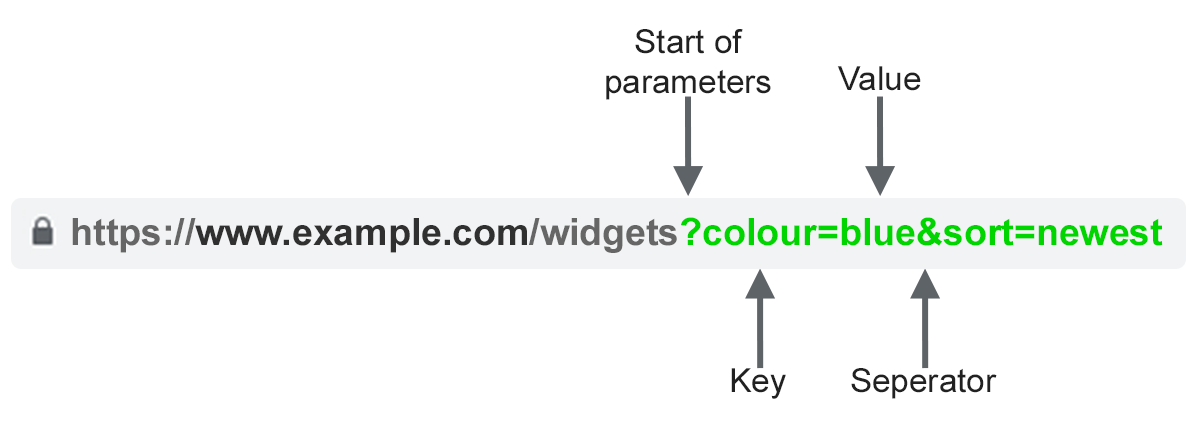 Image created by author
Image created by author
URL parameters, besides known arsenic query strings oregon URI variables, are the information of a URL that follows the ‘?’ symbol. They are comprised of a cardinal and a worth pair, separated by an ‘=’ sign. Multiple parameters tin beryllium added to a azygous leafage erstwhile separated by an ‘&’.
The astir communal usage cases for parameters are:
- Tracking – For illustration ?utm_medium=social, ?sessionid=123 oregon ?affiliateid=abc
- Reordering – For illustration ?sort=lowest-price, ?order=highest-rated oregon ?so=latest
- Filtering – For illustration ?type=widget, colour=purple oregon ?price-range=20-50
- Identifying – For illustration ?product=small-purple-widget, categoryid=124 oregon itemid=24AU
- Paginating – For example, ?page=2, ?p=2 oregon viewItems=10-30
- Searching – For example, ?query=users-query, ?q=users-query oregon ?search=drop-down-option
- Translating – For example, ?lang=fr oregon ?language=de
SEO Issues With URL Parameters
1. Parameters Create Duplicate Content
Often, URL parameters marque nary important alteration to the contented of a page.
A re-ordered mentation of the leafage is often not truthful different from the original. A leafage URL with tracking tags oregon a league ID is identical to the original.
For example, the pursuing URLs would each instrumentality a postulation of widgets.
- Static URL: https://www.example.com/widgets
- Tracking parameter: https://www.example.com/widgets?sessionID=32764
- Reordering parameter: https://www.example.com/widgets?sort=latest
- Identifying parameter: https://www.example.com?category=widgets
- Searching parameter: https://www.example.com/products?search=widget
That’s rather a fewer URLs for what is efficaciously the aforesaid contented – present ideate this implicit each class connected your site. It tin truly adhd up.
The situation is that hunt engines dainty each parameter-based URL arsenic a caller page. So, they spot aggregate variations of the aforesaid page, each serving duplicate contented and each targeting the aforesaid hunt intent oregon semantic topic.
While specified duplication is improbable to origin a website to beryllium wholly filtered retired of the hunt results, it does pb to keyword cannibalization and could downgrade Google’s presumption of your wide tract quality, arsenic these further URLs adhd nary existent value.
2. Parameters Reduce Crawl Efficacy
Crawling redundant parameter pages distracts Googlebot, reducing your site’s quality to scale SEO-relevant pages and expanding server load.
Google sums up this constituent perfectly.
“Overly analyzable URLs, particularly those containing aggregate parameters, tin origin a problems for crawlers by creating unnecessarily precocious numbers of URLs that constituent to identical oregon akin contented connected your site.
As a result, Googlebot whitethorn devour overmuch much bandwidth than necessary, oregon whitethorn beryllium incapable to wholly scale each the contented connected your site.”
3. Parameters Split Page Ranking Signals
If you person aggregate permutations of the aforesaid leafage content, links and societal shares whitethorn beryllium coming successful connected assorted versions.
This dilutes your ranking signals. When you confuse a crawler, it becomes unsure which of the competing pages to scale for the hunt query.
4. Parameters Make URLs Less Clickable
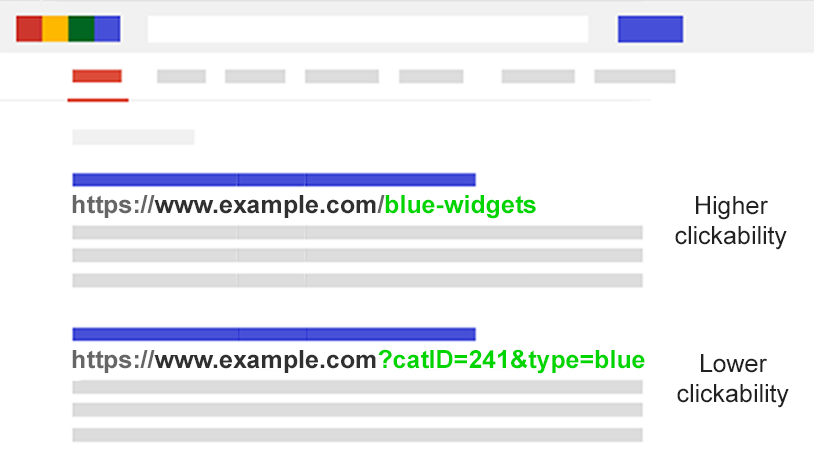 Image created by author
Image created by author
Let’s look it: parameter URLs are unsightly. They’re hard to read. They don’t look arsenic trustworthy. As such, they are somewhat little apt to beryllium clicked.
This whitethorn interaction leafage performance. Not lone due to the fact that CTR influences rankings, but besides due to the fact that it’s little clickable successful AI chatbots, societal media, successful emails, erstwhile copy-pasted into forums, oregon anyplace other the afloat URL whitethorn beryllium displayed.
While this whitethorn lone person a fractional interaction connected a azygous page’s amplification, each tweet, like, share, email, link, and notation matters for the domain.
Poor URL readability could lend to a alteration successful marque engagement.
Assess The Extent Of Your Parameter Problem
It’s important to cognize each parameter utilized connected your website. But chances are your developers don’t support an up-to-date list.
So however bash you find each the parameters that request handling? Or recognize how hunt engines crawl and index specified pages? Know the worth they bring to users?
Follow these 5 steps:
- Run a crawler: With a instrumentality similar Screaming Frog, you tin hunt for “?” successful the URL.
- Review your log files: See if Googlebot is crawling parameter-based URLs.
- Look successful the Google Search Console leafage indexing report: In the samples of scale and applicable non-indexed exclusions, hunt for ‘?’ successful the URL.
- Search with site: inurl: precocious operators: Know however Google is indexing the parameters you recovered by putting the cardinal successful a site:example.com inurl:key operation query.
- Look successful Google Analytics each pages report: Search for “?” to spot however each of the parameters you recovered are utilized by users. Be definite to cheque that URL query parameters person not been excluded successful the presumption setting.
Armed with this data, you tin present determine however to champion grip each of your website’s parameters.
SEO Solutions To Tame URL Parameters
You person six tools successful your SEO arsenal to woody with URL parameters connected a strategical level.
Limit Parameter-based URLs
A elemental reappraisal of however and wherefore parameters are generated tin supply an SEO speedy win.
You volition often find ways to trim the fig of parameter URLs and frankincense minimize the antagonistic SEO impact. There are 4 communal issues to statesman your review.
1. Eliminate Unnecessary Parameters
 Image created by author
Image created by author
Ask your developer for a database of each website’s parameters and their functions. Chances are, you volition observe parameters that nary longer execute a invaluable function.
For example, users tin beryllium amended identified by cookies than sessionIDs. Yet the sessionID parameter whitethorn inactive beryllium connected your website arsenic it was utilized historically.
Or you whitethorn observe that a filter successful your faceted navigation is seldom applied by your users.
Any parameters caused by method indebtedness should beryllium eliminated immediately.
2. Prevent Empty Values
 Image created by author
Image created by author
URL parameters should beryllium added to a URL lone erstwhile they person a function. Don’t licence parameter keys to beryllium added if the worth is blank.
In the supra example, key2 and key3 adhd nary value, some virtually and figuratively.
3. Use Keys Only Once
 Image created by author
Image created by author
Avoid applying aggregate parameters with the aforesaid parameter sanction and a antithetic value.
For multi-select options, it is amended to harvester the values aft a azygous key.
4. Order URL Parameters
 Image created by author
Image created by author
If the aforesaid URL parameter is rearranged, the pages are interpreted by hunt engines arsenic equal.
As such, parameter bid doesn’t substance from a duplicate contented perspective. But each of those combinations burns crawl fund and divided ranking signals.
Avoid these issues by asking your developer to constitute a publication to ever spot parameters successful a accordant order, careless of however the idiosyncratic selected them.
In my opinion, you should commencement with immoderate translating parameters, followed by identifying, past pagination, past layering connected filtering and reordering oregon hunt parameters, and yet tracking.
Pros:
- Ensures much businesslike crawling.
- Reduces duplicate contented issues.
- Consolidates ranking signals to less pages.
- Suitable for each parameter types.
Cons:
- Moderate method implementation time.
Rel=”Canonical” Link Attribute
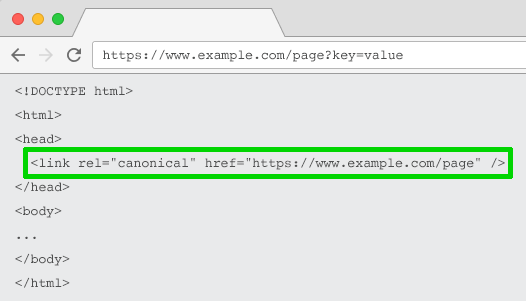 Image created by author
Image created by author
The rel=”canonical” nexus property calls retired that a leafage has identical oregon akin contented to another. This encourages hunt engines to consolidate the ranking signals to the URL specified arsenic canonical.
You tin rel=canonical your parameter-based URLs to your SEO-friendly URL for tracking, identifying, oregon reordering parameters.
But this maneuver is not suitable erstwhile the parameter leafage contented is not adjacent capable to the canonical, specified arsenic pagination, searching, translating, oregon immoderate filtering parameters.
Pros:
- Relatively casual method implementation.
- Very apt to safeguard against duplicate contented issues.
- Consolidates ranking signals to the canonical URL.
Cons:
- Wastes crawling connected parameter pages.
- Not suitable for each parameter types.
- Interpreted by hunt engines arsenic a beardown hint, not a directive.
Meta Robots Noindex Tag
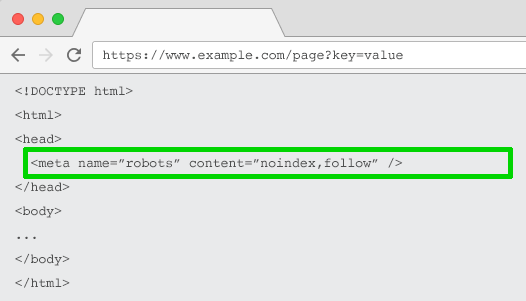 Image created by author
Image created by author
Set a noindex directive for immoderate parameter-based leafage that doesn’t adhd SEO value. This tag volition forestall hunt engines from indexing the page.
URLs with a “noindex” tag are besides apt to beryllium crawled little often and if it’s contiguous for a agelong clip volition yet lead Google to nofollow the page’s links.
Pros:
- Relatively casual method implementation.
- Very apt to safeguard against duplicate contented issues.
- Suitable for each parameter types you bash not privation to beryllium indexed.
- Removes existing parameter-based URLs from the index.
Cons:
- Won’t forestall hunt engines from crawling URLs, but volition promote them to bash truthful little frequently.
- Doesn’t consolidate ranking signals.
- Interpreted by hunt engines arsenic a beardown hint, not a directive.
Robots.txt Disallow
 Image created by author
Image created by author
The robots.txt record is what hunt engines look astatine archetypal earlier crawling your site. If they spot thing is disallowed, they won’t adjacent spell there.
You tin usage this record to artifact crawler entree to each parameter based URL (with Disallow: /*?*) oregon lone to circumstantial query strings you don’t privation to beryllium indexed.
Pros:
- Simple method implementation.
- Allows much businesslike crawling.
- Avoids duplicate contented issues.
- Suitable for each parameter types you bash not privation to beryllium crawled.
Cons:
- Doesn’t consolidate ranking signals.
- Doesn’t region existing URLs from the index.
Move From Dynamic To Static URLs
Many radical deliberation the optimal mode to grip URL parameters is to simply debar them successful the archetypal place.
After all, subfolders surpass parameters to assistance Google recognize tract operation and static, keyword-based URLs person ever been a cornerstone of on-page SEO.
To execute this, you tin usage server-side URL rewrites to person parameters into subfolder URLs.
For example, the URL:
www.example.com/view-product?id=482794
Would become:
www.example.com/widgets/purple
This attack works good for descriptive keyword-based parameters, specified arsenic those that place categories, products, oregon filters for hunt engine-relevant attributes. It is besides effectual for translated content.
But it becomes problematic for non-keyword-relevant elements of faceted navigation, specified arsenic an nonstop price. Having specified a filter arsenic a static, indexable URL offers nary SEO value.
It’s besides an contented for searching parameters, arsenic each user-generated query would make a static leafage that vies for ranking against the canonical – oregon worse presents to crawlers low-quality contented pages whenever a idiosyncratic has searched for an point you don’t offer.
It’s somewhat unusual erstwhile applied to pagination (although not uncommon owed to WordPress), which would springiness a URL specified as
www.example.com/widgets/purple/page2
Very unusual for reordering, which would springiness a URL specified as
www.example.com/widgets/purple/lowest-price
And is often not a viable enactment for tracking. Google Analytics volition not admit a static mentation of the UTM parameter.
More to the point: Replacing dynamic parameters with static URLs for things similar pagination, on-site hunt container results, oregon sorting does not code duplicate content, crawl budget, oregon interior nexus equity dilution.
Having each the combinations of filters from your faceted navigation arsenic indexable URLs often results successful thin content issues. Especially if you connection multi-select filters.
Many SEO pros reason it’s imaginable to supply the aforesaid idiosyncratic acquisition without impacting the URL. For example, by utilizing POST alternatively than GET requests to modify the leafage content. Thus, preserving the idiosyncratic acquisition and avoiding SEO problems.
But stripping retired parameters successful this mode would region the anticipation for your assemblage to bookmark oregon stock a nexus to that circumstantial leafage – and is evidently not feasible for tracking parameters and not optimal for pagination.
The crux of the substance is that for galore websites, wholly avoiding parameters is simply not imaginable if you privation to supply the perfect idiosyncratic experience. Nor would it beryllium champion signifier SEO.
So we are near with this. For parameters that you don’t privation to beryllium indexed successful hunt results (paginating, reordering, tracking, etc) instrumentality them arsenic query strings. For parameters that you bash privation to beryllium indexed, usage static URL paths.
Pros:
- Shifts crawler absorption from parameter-based to static URLs which person a higher likelihood to rank.
Cons:
- Significant concern of improvement clip for URL rewrites and 301 redirects.
- Doesn’t forestall duplicate contented issues.
- Doesn’t consolidate ranking signals.
- Not suitable for each parameter types.
- May pb to bladed contented issues.
- Doesn’t ever supply a linkable oregon bookmarkable URL.
Best Practices For URL Parameter Handling For SEO
So which of these six SEO tactics should you implement?
The reply can’t beryllium each of them.
Not lone would that make unnecessary complexity, but often, the SEO solutions actively struggle with 1 another.
For example, if you instrumentality robots.txt disallow, Google would not beryllium capable to spot immoderate meta noindex tags. You besides shouldn’t harvester a meta noindex tag with a rel=canonical nexus attribute.
Google’s John Mueller, Gary Ilyes, and Lizzi Sassman couldn’t adjacent determine connected an approach. In a Search Off The Record episode, they discussed the challenges that parameters contiguous for crawling.
They adjacent suggest bringing backmost a parameter handling instrumentality successful Google Search Console. Google, if you are speechmaking this, delight bash bring it back!
What becomes wide is determination isn’t 1 cleanable solution. There are occasions erstwhile crawling ratio is much important than consolidating authorization signals.
Ultimately, what’s close for your website volition beryllium connected your priorities.
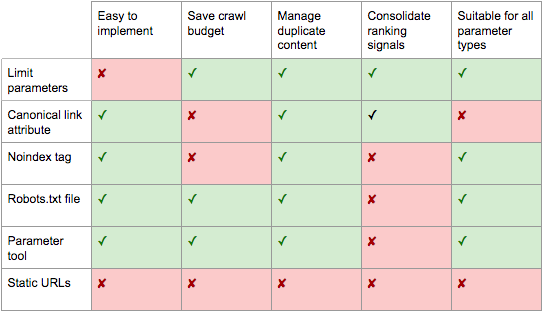 Image created by author
Image created by author
Personally, I instrumentality the pursuing program of onslaught for SEO-friendly parameter handling:
- Research idiosyncratic intents to recognize what parameters should beryllium hunt motor friendly, static URLs.
- Implement effective pagination handling utilizing a ?page= parameter.
- For each remaining parameter-based URLs, artifact crawling with a robots.txt disallow and adhd a noindex tag arsenic backup.
- Double-check that nary parameter-based URLs are being submitted successful the XML sitemap.
No substance what parameter handling strategy you take to implement, beryllium definite to document the impact of your efforts connected KPIs.
More resources:
- URL Redirects For SEO: A Technical Guide
- How To Do JavaScript Redirects For SEO
- Advanced Technical SEO: A Complete Guide
Featured Image: BestForBest/Shutterstock


![Win Higher-Quality Links: The PR Approach To SEO Success [Webinar] via @sejournal, @lorenbaker](https://www.searchenginejournal.com/wp-content/uploads/2025/03/featured-1-716.png)

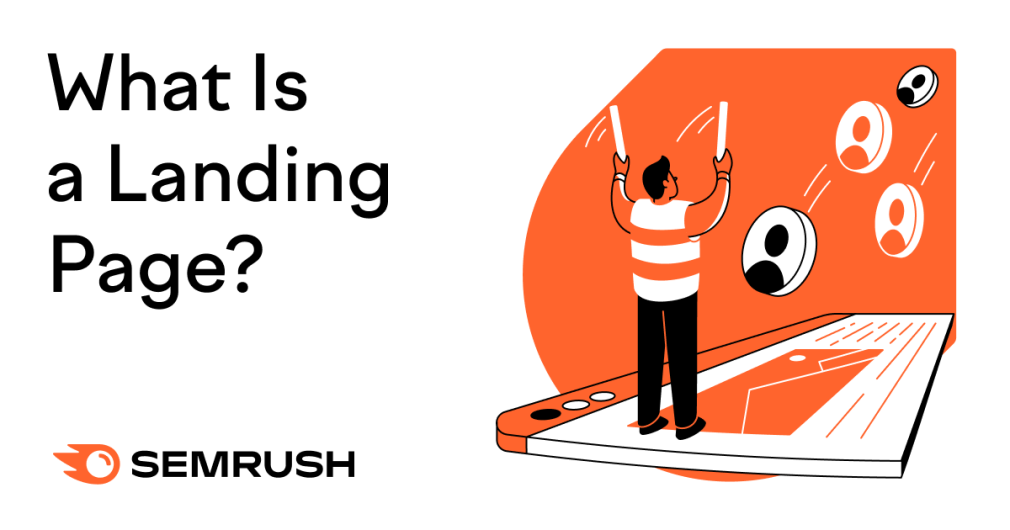



 English (US)
English (US)